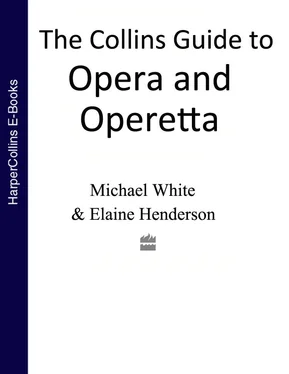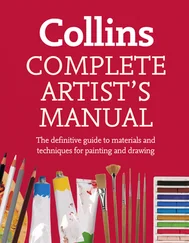Duke Bluebeard’s Castle

FORM: Opera in one act; in Hungarian
COMPOSER: Béla Bartók (1881–1945)
LIBRETTO: Béla Balázs; after a fairy tale by Charles Perrault
FIRST PERFORMANCE: Budapest, 24 May 1918

Principal Characters
Duke Bluebeard  Bass
Bass
Judith,his wife  Mezzo-soprano
Mezzo-soprano
Synopsis of the Plot
Setting:Bluebeard’s castle; an unknown time and country
Bluebeard enters, leading his new wife into her home, a strange, dark Gothic castle which has seven doors but no windows. He asks her if she has changed her mind about staying with him and, on her reassurance that she has not, they embrace. The door behind them is shut and bolted. Judith then notices the doors for the first time and, saying she wants to let in light and air, asks the Duke for the keys. A strange, long sighing sound is heard throughout the castle as Bluebeard, on her insistence, gives her the key to the first door. As she opens it a vivid red light streams through; it is the Torture Chamber and the walls are wet with blood. Undeterred, Judith maintains that she is not afraid and proceeds to open the next four doors: the Armoury is characterised by bronze light, the Treasury by golden light, the Garden by bluish light and the vision of Bluebeard’s Kingdom by a brilliant white light. Bluebeard suggests that she has seen enough and takes her in his arms. But Judith is, by now, obsessed with knowing all his secrets and demands the sixth key. The haunting sigh is heard once more as she opens the door to find a Lake of Tears.
The final door, insists Bluebeard, must remain closed. But Judith begins to question him about his love for her. She wants to know about the women he loved before he met her, and asks what happened to them. Bluebeard stays silent and Judith opens the door, convinced that the truth lies behind it. Immediately the fifth and sixth doors swing shut and the stage darkens. Three beautiful women step out: they are his ex-wives, Bluebeard explains, and represent the morning, noon and evening of his love. Judith, he says, is his last love, that of the night, and after her is eternal darkness. Judith disappears through the seventh door and Bluebeard is alone.
Music and Background
As theatre, Duke Bluebeard’s Castle is compact, with just one act and a playing time of an hour, but as music it has epic stature, grandly terrifying in its depiction of Duke Bluebeard’s dark domain and heavy with the gloom of Gothic horror. Bartók’s treatment of the story is, of course, symbolic – the opening of the doors is like an exercise in Freudian analysis, exposing the hidden secrets of the subconscious mind – and the counterbalancing of inner and outer worlds is echoed in Bartók’s key structures, which gravitate between F sharp for Bluebeard and C for Judith.
Highlight
This is not an opera with stand-alone arias, and there are, after all, only two singing characters: the dead wives behind the sixth door are mute. But there is a great musical climax at the fifth door when the vision of Bluebeard’s kingdom floods the stage – a heart-stopping moment that never fails in its effect.
Did You Know?
 Bartók wrote this grim tale of domestic serial killing shortly after his marriage. He dedicated the score to his wife.
Bartók wrote this grim tale of domestic serial killing shortly after his marriage. He dedicated the score to his wife.
Recommended Recording
Samuel Ramey, Eva Marton, Hungarian State Orchestra/Adam Fischer. Sony MK 44523. Idiomatically conducted, with explosively strong performances from the two singers.
Ludwig van Beethoven
(1770–1827)
Fidelio (1805)
Born in Bonn but living and working in Vienna from his early twenties, Beethoven is one of the towering, pivotal figures of music history, with a massive output (nine symphonies, thirty-two piano sonatas, sixteen string quartets, seven concertos …). His work carried the Classical forms of Haydn and Mozart into the new territory of Romanticism and confirmed the potential of music to speak in spiritual as well as political terms. A radical humanitarian with revolutionary sympathies, he used his work as a public platform for the expression of personal beliefs about society and the individual, and his only opera Fidelio was exactly that: a statement of the power of the human spirit to triumph over tyranny and oppression which stands beside the choral finale of Beethoven’s Ninth Symphony as an anthem to the ideals of universal brotherhood. Other scores express a more autobiographical struggle with human weakness: at the age of thirty he began to realise that he was going deaf, and as his hearing worsened he withdrew into a world of inner turmoil which found a mystical dimension in the late quartets.
Fidelio

FORM: Opera in two acts; in German
COMPOSER: Ludwig van Beethoven (1770–1827)
LIBRETTO: Joseph Sonnleithner and Georg Friedrich Treitschke; after the play by Jean-Nicolas Bouilly
FIRST PERFORMANCE: Vienna, 20 November 1805

Principal Characters
Florestan, a Spanish nobleman  Tenor
Tenor
Leonore, his wife, disguised as the male Fidelio  Soprano
Soprano
Rocco, chief jailer  Bass
Bass
Marzelline, Rocco’s daughter  Soprano
Soprano
Jaquino, Rocco’s assistant  Tenor
Tenor
Don Pizarro, governor of the prison  Bass-baritone
Bass-baritone
Don Fernando, the king’s minister  Bass
Bass
Synopsis of the Plot
Читать дальше


 Bass
Bass Bartók wrote this grim tale of domestic serial killing shortly after his marriage. He dedicated the score to his wife.
Bartók wrote this grim tale of domestic serial killing shortly after his marriage. He dedicated the score to his wife.










